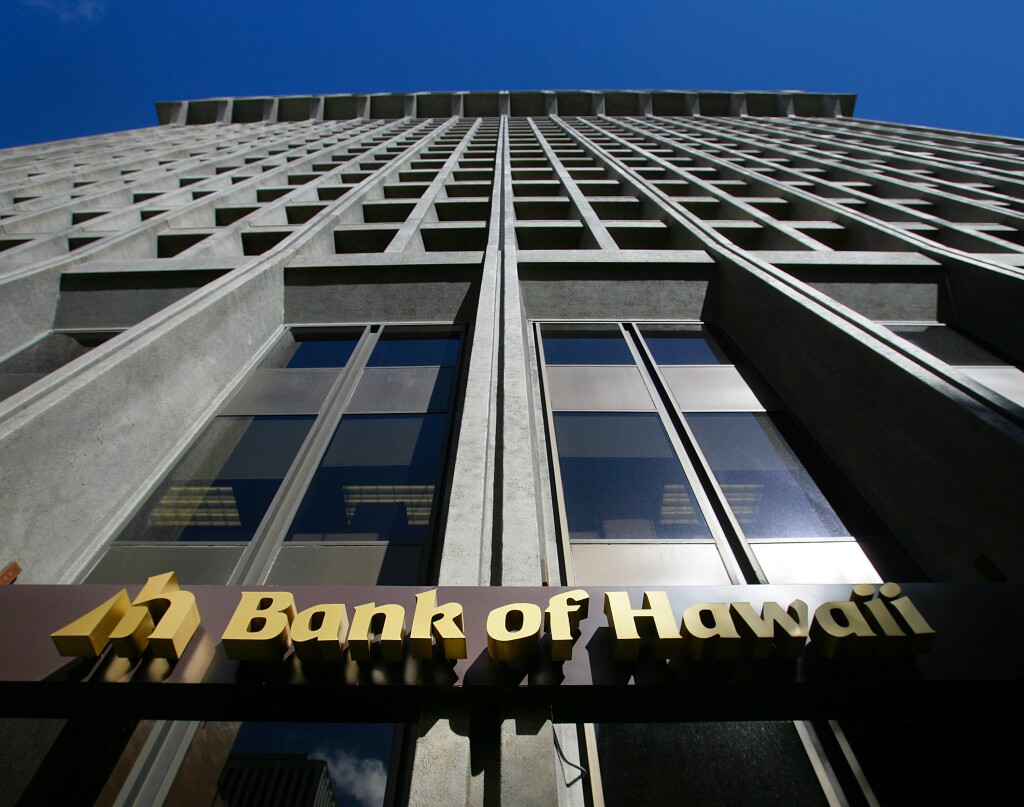After making it through a regional banking crisis, economic uncertainty and the residual effects of rapidly rising interest rates, 2024 was a good year to be a bank CEO.
Nearly all chief executives saw their pay go up last year, according to a new analysis of nearly 60 U.S. banks by the consulting firm Compensation Advisory Partners. Those who got the biggest year-over-year spikes were also some of the leaders whose compensation had been slashed the most in 2023.
Total compensation for bank chief executives rose last year by about 18%, per the report. That increase — comparable with pandemic-era bumps in pay —
The
Additionally, shareholder returns for the one- and three-year periods that ended at the close of 2024 were up by 20.5% and 11.5%, respectively. After the presidential election in November, banks’ stock prices rode a so-called Trump bump for weeks amid hopes of deregulation and business-friendly policies during the new administration.
Here is a look at the six bank CEOs whose total direct compensation, which includes base pay, bonuses and long-term incentives, rose by the largest percentages in 2024.

Brent Beardall, president and CEO of WaFd Inc.
2024 total compensation: $5.0 million
2023 total compensation: $3.0 million
Year-over-year increase: 64%
Beardall was tapped as CEO of WaFd in 2017, after more than 15 years at the Seattle-based company. Last year, WaFd opted to award him nearly $1.5 million in annual incentive pay, or 150% of his base salary — the maximum in the range set by the bank.
In 2023, Beardall went without a bonus, as WaFd’s earnings per share came in under its designated threshold for bonus pay. Additionally, Beardall took a six-week medical leave at the beginning of that year due to
The CEO’s 2024 bonus, tied to the bank’s earnings per share performance, is part of a total compensation plan that’s meant “to both encourage and reward behaviors that ultimately contribute to the achievement of the company’s strategic goals and produce maximum value to its shareholders over the long term,” according to the $27.4 billion-asset bank’s latest proxy statement.
WaFd’s compensation committee also said that 64% of Beardall’s total potential compensation was “at risk,” in order to align performance with shareholder interest. His base salary of $975,000 was flat year over year.
At WaFd’s stockholder meeting in February, about 93% of the votes were cast in favor of approving the bank’s executive compensation plan.

Mariner Kemper, chairman, president and CEO of UMB Financial
2024 total compensation: $7.7 million
2023 total compensation: $4.8 million
Year-over-year increase: 60%
Kemper, the longtime leader of UMB, received a bonus in 2024 that comprised about one-third of his total compensation. A 45% annual increase in long-term incentive compensation led to stock awards of $4 million.
The increases in Kemper’s 2024 compensation marked a stark shift from the prior year, when his bonus pay fell 45% and his long-term incentive pay increased just 6%.
About 89% of votes at UMB’s annual shareholder meeting were cast in favor of the company’s compensation plan.
The $69 billion-asset bank, which was founded by Kemper’s great-grandfather in 1913, said last year that it would acquire Heartland Financial USA in Denver in a deal valued at $2 billion — the largest in its history. The acquisition, which closed earlier this year, grew UMB’s assets by about 45% and expanded its footprint from eight states to 13.
“On the heels of a challenging 2023 for the banking industry, 2024 was a transformational year for UMB,” the company wrote in its proxy statement.
Kemper is UMB’s largest individual shareholder, with a 5.17% stake in the Kansas City-based company.

piter2121 – stock.adobe.com
John Kemper, president and CEO of Commerce Bancshares
2024 total compensation: $7.4 million
2023 total compensation: $4.8 million
Year-over-year increase: 54%
The Missouri CEO’s compensation was boosted in 2024 by a 1% increase in base salary, a 117% increase in bonus pay and a 52% increase in long-term incentive pay from the previous year.
“The performance review of our CEO is based on the financial performance of the company, growth in the human capital of the organization, and the company’s overall management of risk,” Commerce said in its proxy statement.
Executive performance is also benchmarked against goals for net income, revenues and return on equity compared with peers.
Kemper wrote in Commerce’s latest annual report that 2024 “brought a mix of opportunities and challenges,” but that the bank’s performance was buoyed by “low credit costs and disciplined expense management.”
Commerce’s diluted earnings per share increased by about 12% in 2024, to $3.87.
Kemper joined the $32.4 billion-asset company in 2007. He took the reins as CEO in 2018 from his father, David Kemper, who still serves as executive chairman of Commerce.

Peter Ho, chairman and CEO of Bank of Hawaii
2024 total compensation: $4.8 million
2023 total compensation: $3.3 million
Year-over-year increase: 46%
In 2023, Bank of Hawaii trimmed Ho’s bonus by 70%, and his long-term incentive pay fell by 40%. Last year, the CEO of 15 years earned $1.5 million in bonus pay and $2.4 million in long-term compensation.
The $24 billion-asset bank evaluates Ho’s short-term incentive pay based on financial performance — such as non-performing assets, return on equity, revenue and efficiency — along with community presence and leadership developments, per Bank of Hawaii’s latest proxy statement.
The document noted that Ho serves on 10 local boards “and in a leadership role guiding Hawai’i.” Additionally, the bank completed a “talent review and succession planning across the organization” in 2024. In July, Bank of Hawaii promoted James Polk from chief banking officer to president of the company and its banking subsidiary.
Even as many banks have scaled back language around diversity, equity and inclusion amid pressure from the Trump administration, Bank of Hawaii said in its proxy that some incentive metrics are tied to “attracting, retaining and developing diverse talent” and “sustainable development through financing solutions that generate positive environmental and social impacts.”

Anthony Labozzetta, president and CEO of Provident Financial Services
2024 total compensation: $3.0 million
2023 total compensation: $2.0 million
Year-over-year increase: 46%
Provident’s Labozzetta was one of just a handful of bank CEOs who saw double-digit growth in base pay. His salary increased to $950 million in 2024, up 15% annually and a 46% increase from 2022.
The New Jersey-based bank said in its latest proxy statement that Labozzetta’s base salary was increased last year “in consideration of peer group market data, where his total direct compensation was below the median of his peers.”
Labozzetta’s bonus pay was also up 188% last year, to $891,000. That boost came after the CEO took a 53% cut to his annual incentive pay in 2023.
The $24.2 billion-asset bank has increased its asset size by about 70% from a year ago, after
“Based on the transformative nature of the Lakeland merger,” Provident said in its proxy statement, Labozzetta received a performance-vesting restricted grant, valued at $450,000 when it was awarded.
“These were provided to motivate and reward” for a successful integration,” the company wrote.
Since closing the deal — which took about a year and a half to get across the finish line — Provident has launched

John Hairston, president and CEO of Hancock Whitney
2024 total compensation: $7.3 million
2023 total compensation: $5.0 million
Year-over-year increase: 44%
Bonus pay for Hancock Whitney’s CEO went up by 60% last year, and his long-term incentive pay rose by 56%. The jump came after Hairston’s total compensation decreased 20% in 2023.
“Fiscal year 2024 results reflect a year of improving profitability and strengthening capital,” Hairston said in the company’s annual report. “As we look forward to 2025, we plan to continue this momentum to [achieve] a new set of strategic goals.”
About 75% of Hairston’s total target direct compensation was “at risk” and must be earned by meeting corporate performance goals, the Mississippi-based company said in its proxy statement. In 2024, Hancock Whitney brought in earnings per share of $5.31, above its $4.95 target.
Hairston has been the company’s CEO since 2008 and was at the helm during
Earlier this year, the bank also said it had launched an organic growth plan to expand its footprint and staff, projecting accelerated growth in the second half of 2025.

